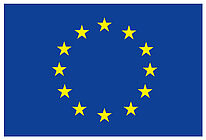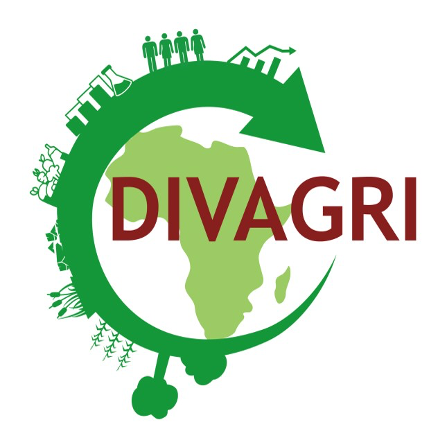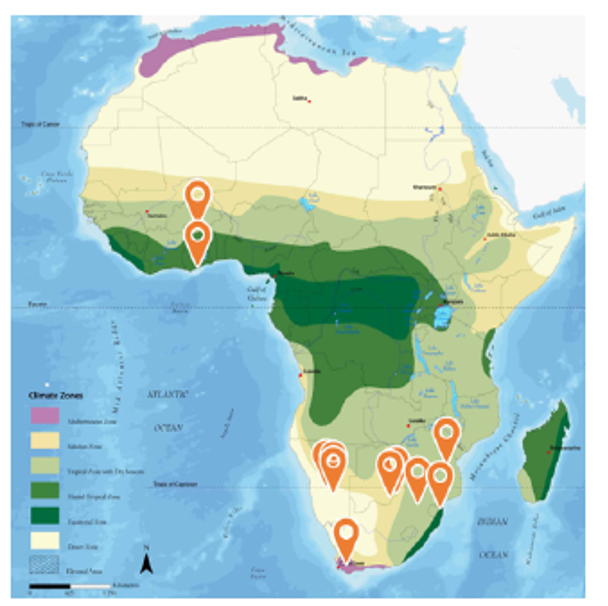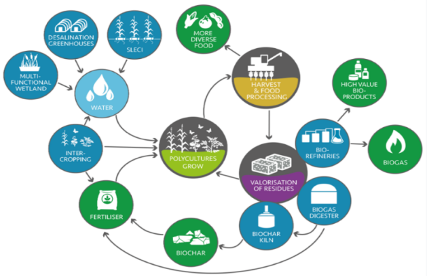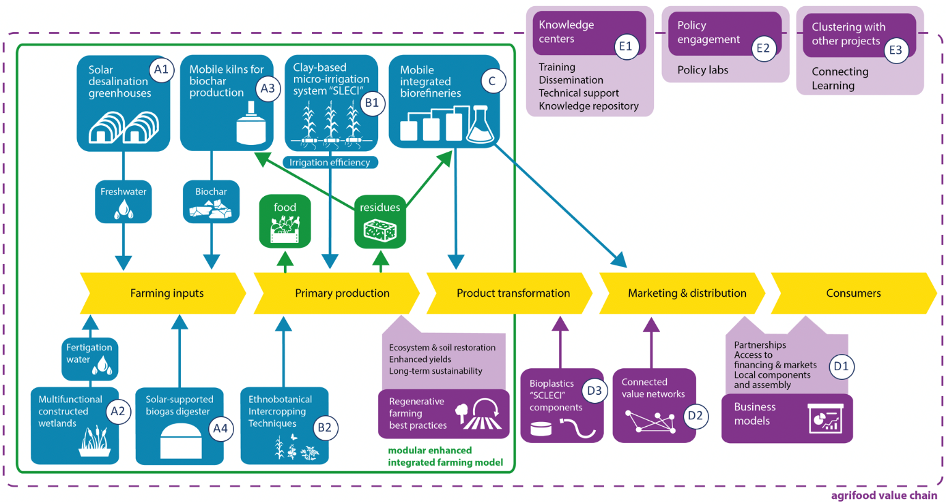DIVAGRI
Innovative farming in Africa
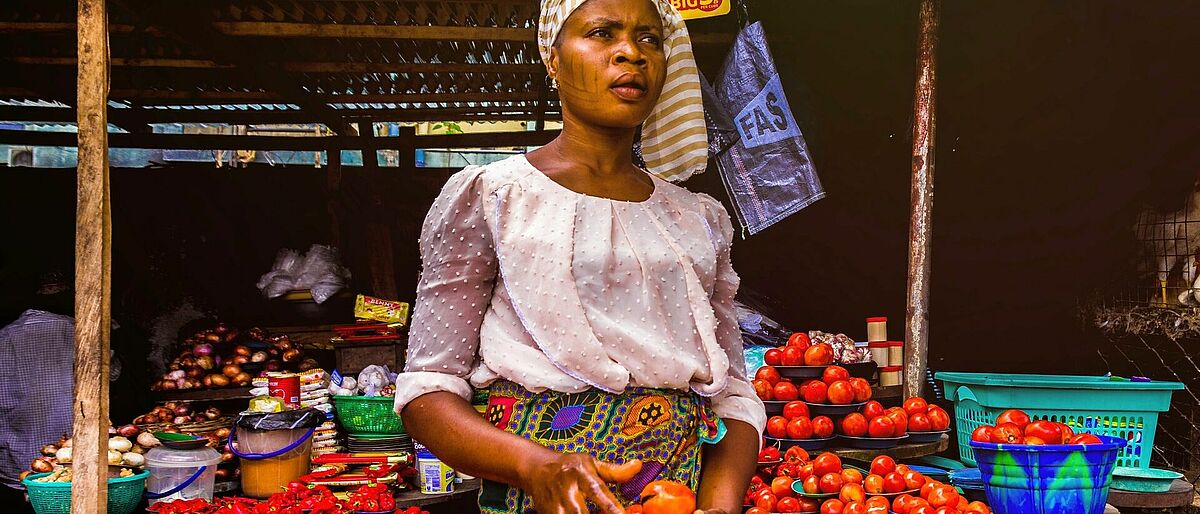
The European Union's research project DIVAGRI aims to provide African individual and smallholder farmers with tools to improve their productivity, profitability and resilience. The production cycle is to be made more efficient, biotechnology-based and environmentally friendly in order to sustainably secure incomes.
This four-year research project started on 1 June 2021 and is coordinated by the Robert Schmidt Institute at Wismar University of Applied Sciences. The consortium consists of eight pan-European and twelve African organisations - including universities, companies and Non-Governmental Organisations. It is funded by the EU's Horizon 2020 programme under the funding line "Diversifying incomes in rural Africa through bio-based solutions" with around nine million euros.
In many rural areas of Africa, subsistence agriculture is dominant, i.e. the production goal is largely self-sufficiency to ensure the livelihood of a family or a small community. In many areas, this livelihood is at risk due to inadequate water supply, a lack of technical know-how and insecure sources of income for the farms. This situation is often exacerbated by unsustainable agricultural practices. The consequence is the migration of the population from rural areas to urban areas.
Climate change in particular has a negative impact on agricultural production in water-scarce regions of Africa. Efficient water use within agriculture is thus a key factor in strengthening rural areas. The establishment of a circular bioeconomy holds considerable potential for the socio-economic and environmental sustainability of agricultural structures. Smallholder farmers play a crucial role in addressing the challenges of food security, poverty alleviation and climate change. DIVAGRI targets smallholder farmers in rural sub-Saharan Africa, who account for 80% of all farms in the region and contribute up to 90% of food production in rural areas.
- Development of Bio-based Solutions (BBS) together with individual and smallholder farmers in partner countries.
- Testing and adapting BBS in different contexts to improve production conditions - especially freshwater availability and soil health
- Diversifying crops, increasing agricultural productivity and economic returns at pilot sites and field demonstrations
- Creation of new sources of income in certain rural communities through new organic products from residues
- Integration of BBS into existing agricultural production chains and promotion of the broad acceptance of DIVAGRI solutions
DIVAGRI delivers new and sustainable bio-based value chains that can be easily integrated into African agri-food systems to economically empower rural communities:
- increase income from agriculture, e.g. through diversification, savings and investment,
- operate in a more sustainable and environmentally friendly way,
- develop new economic sectors and thus create new jobs.
With this we are addressing in particular:
- the individual and smallholder farmers of the target regions in the partner countries
- the implementation of eleven of the United Nations SDGs
- EU-Africa cooperation, here the development of sustainable food systems with African partners
- EU strategies: implementation of the strategies of the European Green Deal as well as on sustainable food systems, climate and environment and the circular economy
- biodiversity as a key factor for agro-ecological success and improvement of living conditions in the target regions
The DIVAGRI project is developing seven bio-based technologies with matching business solutions for implementation in existing African agri-food systems over its four-year duration. From the perspective of smallholder farmers and their communities, the project's solutions address different nodes and stages of the agricultural value chain, from soil improvement to production and new marketing strategies. The following figure shows the main interventions planned in DIVAGRI. These are divided into the following five phases:
- Use of unconventional water sources and soil improvers as agricultural inputs.
- Development, integration and testing of sustainable agricultural technologies (food crops)
- Utilization of agricultural residues through novel biorefinery processes (valorization of biomass)
- Business models for broader acceptance of biobased solutions and creation of regionally linked value-added networks (activation of the rural bioeconomy)
- Involvement of political decision-makers and other stakeholders (creation of synergies and framework conditions).
The consortium involved in the project consists of 21 partner institutions with expertise in agricultural sciences, engineering, bio-based technologies, food systems, circular bioeconomy, enterprise development and entrepreneurship and education. The partners come from five African countries (Botswana, Ghana, Mozambique, Namibia and South Africa) and six European countries (Bulgaria, Germany, Austria, Spain, Turkey and Northern Macedonia). The DIVAGRI consortium already includes key stakeholders/stakeholders such as farmers, technology providers, research centres, extension service providers, policy makers and civil society organizations.
Key data
| Duration | 01.06.2021 – 31.05.2025 |
| Grant agreement ID | 101000348 |
| Project manager | Sebastien Clerc-Renaud (Hochschule Wismar, DE), Dr. Tiziana Centofanti (wissenschaftliche Leitung / alchemia-nova GmbH, AT) |
| Partners (Europa) | Hochschule Wismar (Koordinator), Institut für Polymer- und Produktionstechnologien e.V. (DE), G&G Extrusionstechnik GmbH (DE), Alchemia-nova GmbH (AT), FH Joanneum GmbH (AT), Asociacion de la Industria Navarra (ES), Institut Po Ovoshtarstvo-Plovdiv (BG), Ss. Cyril and Methodius University in Skopje (MP), İstanbul Avrupa Araştırmaları Derneği (TR) |
| Partners (Afrika) | Stellenbosch University, Agricultural Research Council (SA), Namibia University of Science and Technology, Lisha Empowerment and Development, Namibia Rotomould CC (NA), University of Cape Coast, Council for Scientific and Industrial Research – Crops Research Institute, Lake Agege Farm (GH), Botswana University of Agriculture and Natural Resources, National Agricultural Research and Development Institute (BW), Instituto Superior Politecnico de Manica, Center for Research and Technology Transfer to Communities (MZ)) |
| Funding programme | EU Horizon 2020 |
| Funding line | CE-SFS-36-2020: Diversifying revenue in rural Africa through bio-based solutions |
| Type of funding | RIA – Research and Innovation Action |
| Coordinator | University of Applied Sciences Wismar, DE |
| Funding amount | EUR 8.994.693 |
This project has received funding from the European Union’s Horizon 2020 Research and Innovation Programme under grant agreement No 101000348.
